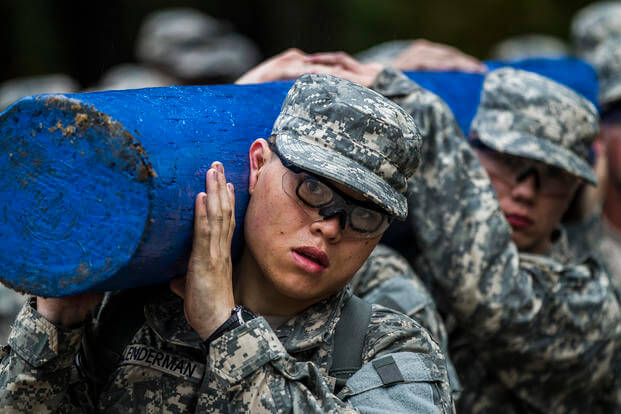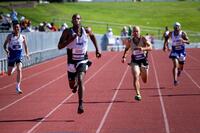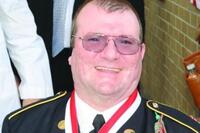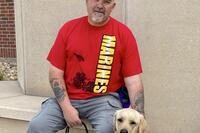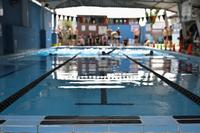When asked recently about the most important "non-physical" trait someone who is about to attend BUD/S or any other special-ops selection program should have, it took a minute to decide on the "most important." Sure, you need mental toughness, a never-quit attitude and must be hard physically, but I think the most important non-physical trait is being a team player.
Of course, there are individual challenges and tests that you alone must conquer, but no one makes it through any selection program by themselves. You must be a team player and help each other get through training together.
What is a team player?
You might think that a team player must be an athlete in a former life, but there are many ways to be a team player. Not all special-ops candidates are former athletes in high school or college. Most are, but it does not take an athlete to be in good physical shape and conditioning.
Some of the best teammates I ever had played individual sports like wrestling or cross country, but also did something else like band or acted in plays. Yes, that is right. Some of the best team players I have seen had a background in music and acting, so do not knock the band members and drama-club kids. Teamwork is teamwork, no matter what it looks like.
Another example is the family team player. Some did not play any sports, instead working after school to help support their family, either at a family business or just to earn more money to make ends meet. These guys join the military and send their paycheck home to help younger siblings buy food and clothes.
Typically, they have a solid work ethic, are mentally tough and have a great attitude when under a log or a boat. In their mind, they are working out for a living and have a place to sleep and plenty of food to eat. That is what team players look like.
On a side note, all sports of former team athletes are represented at BUD/S. However, those sports that have a high rate of success are lacrosse, wrestling and any running (as long as you have a decent swimming background).
Team event
You will be a team or boat crew carrying a boat (on head or by handles), paddling a boat, carrying a log and being accountable each day. Your entire class is a team, and you will succeed and fail together. The more your team fails, the more you pay the price in some form of extra physical events or time-consuming duty.
Your respect for the team and holding yourself accountable to set the standard for your teammates are critical to your personal survival as well as your team's success. When someone from your boat crew or team is not meeting the standard and making it more difficult for the rest of the team, the boat-crew leader has the duty to counsel that person.
Do not team up against them and make them quit. It is the instructor's job to do that. The instructors will notice, especially if your boat or team is being dragged down by someone not pulling their own. Show up last a few times in races, and you will receive all of the instruction you would want.
That either will motivate the group never to be in that situation again, or the weak links will fall. The goal as a team is to move smoothly from one event to another. This will make or break your team, as it always "pays to be a winner." If you get caught up in petty bickering about who is not working hard enough, you can lose valuable time, fail events and create a feeling of distrust within the team.
For instance, when you carry the boat by hand, you are basically farmer-walking the boat as a team. Eventually, one hand grip will fail, and you have to switch hands. The only way to do that is to switch sides with one of your teammates.
The best way is to switch out sides as a group -- almost like a Chinese fire drill in your car at a stoplight (for lack of a better analogy). Both sides travel clockwise around the boat on verbal command, and you are back to moving again within seconds.
Another example is log PT. Overhead presses and holds of the log get tough quickly -- within minutes. However, if pushing a log -- or a boat, for that matter -- over your head, your team needs to get good at implementing a quick push press, versus a pure shoulder press. Using your legs to push the log or boat to an overhead, extended-arm position will give your team more time before failure kicks in. But this takes perfect timing and is a perfect example of how teamwork makes tasks easier for everyone.
You cannot maneuver through these events without being a functionally working team. Once you have completed your selection, you will join what can be described as the ultimate in teams -- The Teams. Your success means your team lives another day; it is that serious. So go into training with a teamwork mentality. Rambo does not make it in the Teams.
Stew Smith is a former Navy SEAL and fitness author certified as a Strength and Conditioning Specialist (CSCS) with the National Strength and Conditioning Association. Visit his Fitness eBook store if you're looking to start a workout program to create a healthy lifestyle. Send your fitness questions to stew@stewsmith.com.
Want to Learn More About Military Life?
Whether you're thinking of joining the military, looking for fitness and basic training tips, or keeping up with military life and benefits, Military.com has you covered. Subscribe to Military.com to have military news, updates and resources delivered directly to your inbox.
